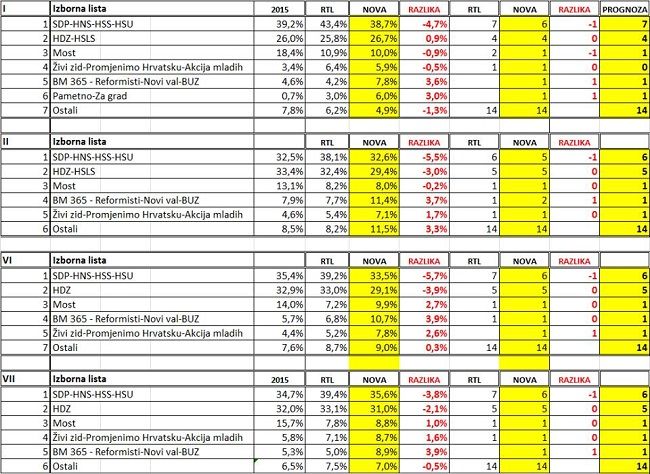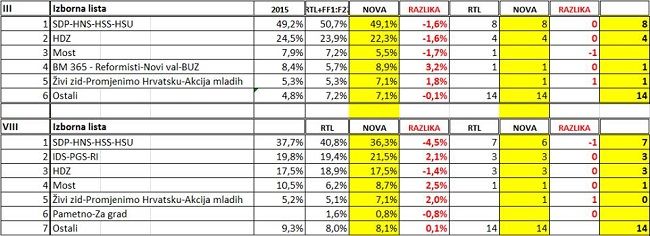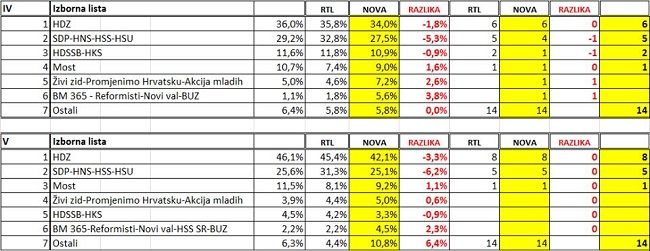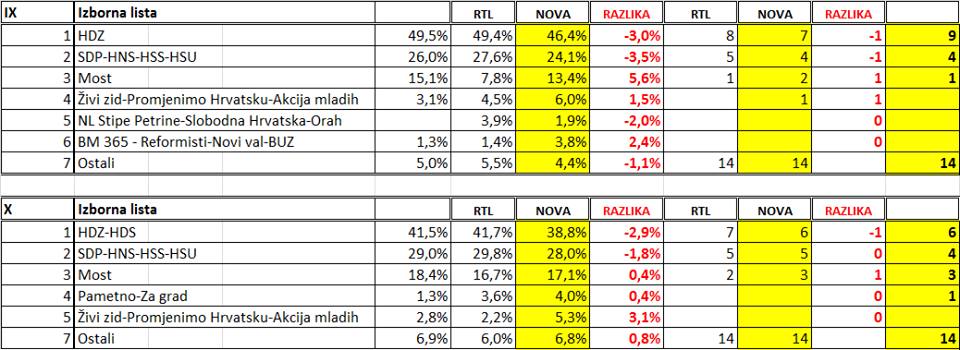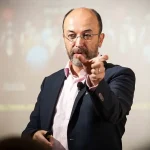Ahead of Sunday’s elections, TCN interviews Krešimir Macan, a respected Croatian PR professional specialized in politics, crisis management and social media on September 9, 2016.
Here we are again, 10 months after the last election. Two of the main differences are the change in HDZ leadership and the perception of MOST. Starting with Plenković, is he a wolf in sheep’s clothing, or has HDZ really changed with his more centrist position after replacing Karamarko? Is HDZ appealing to a broader electorate with him in charge?
With Plenković, HDZ has definitely started moving towards the centre. There are already reports that Karamarko’s controversial Culture Minister Hasanbegović will not be reappointed if HDZ forms the next government. That is this new Croatian paradigm which is being advocated by Plenković’s closest associate and MEP, Davor Stier. There is resistance within the party, but if Plenković forms a government, he will prevail. The decision not to form a pre-election coalition with extreme rightwing party HSP AS, which together with other similar parties will no longer be in Parliament, best demonstrates that change. That party contributed to the impression of a right turn during the last year.
MOST were the surprise package of the last election, and many who voted for them were disappointed with what followed. What are your thoughts on the MOST project after a brief show in government, and will they be the kingmakers this time?
They will be kingmakers, since they might expect 10-12 seats, but with a difference that there might be other partners too in the new Coalition government, since SDP and HDZ might not have more than 60 seats this time around. This time they are expected to be easier to negotiate with.
How important will be the minority parties in this election?
They will confirm the new majority, but they will not be the ones who will decide who will be in the majority, since you need a few MPs over 76 to have a stable government. However, the leader of Serbs in Croatia Milorad Pupovac has lately been attacking Milanović, after the publication of his secretly recorded conversations, and he is public saying that HDZ could be a better partner.
The last government spent a lot of time focused on Croatia’s past, whereas Plenković has said he wants to focus on the economy and the future. How likely is it that the past will be less of an issue in the event of a Plenković victory?
As seen in both TV debates, both Milanović and Plenković are focused on budget/tax reforms, so it seems that this time we could expect some changes finally in that direction. And they are both the kind of leaders who could talk to each other on important topics.
There has been much comment in the media that Croatia moved to the right in the last 12 months, as other Central European countries such as Poland and Hungary have done. What are your thoughts on this?
That was an attempt by Karamarko, which MOST did not oppose much, especially regarding educational reform. But this made left and centre intellectuals quite angry, and this was one of the reason why former government was not popular and why everybody relaxed when Karamarko resigned. Croatian voters are still divided along the lines of the 1991 war – areas where war took place and where casualties happened mostly vote for rightwing parties, while other areas generally vote for leftwing candidates. Karamarko tried to build tensions by creating a division that HDZ voters were good Croats, while those who vote for the leftwing parties were “communists” who did not want Croatia. SDP leader Milanović successfully dismantled that approach in 2015, and this time he tried to show on a personal example that a lot of families have ancestors who were on both sides of the Second World War. Many people have resolved that, like he did, years before with reconciliation within their families. Milanović said that it was time to stop dividing people on who is a better Croat. That is where that information about his Ustasha grandfather came from in the first debate.
Foreigners do not understand that some on the right are not satisfied with the fact that the complete truth is still not known about the killings of captured members of the Croatian quisling troops and civilians captured in Austria and later massacred mostly in Slovenia. Their graves are still being investigated, and sometimes there is a lack of understanding of the search for the truth – they do not demand the rehabilitation of the Ustashe, but they want to find the truth. A similar issue is with the crimes of the Yugoslav secret police against Croatian émigrés who were assassinated, even with their whole families. In 1991 there was no lustration due to the war, and it is difficult to implement it 25 years later, and this is something that should truly be left to the judiciary and historians. However, in the latest case of the murder of émigré Stjepan Đureković in 1983, instead of Croatian courts, the job had to be done by a court in Germany 33 years later. These are the ghosts that people are still fighting against. The right is quite often correct in that regard.
Relations with Serbia are strained on a number of levels, and Serbia is an easy populist target among certain parts of the electorate. Do you expect relations to improve after the elections, and what should the priorities be for the new government regarding Serbia?
Both sides know that this is election time and that things will have to settle afterwards. No matter who forms the government, it seems they will have the same position on one issue – the issue of Serbia’s law on universal jurisdiction, which will be part of the package that Serbia must meet on its path towards the EU. If there is one thing about which there exists a consensus in Croatia, then that is it. Croatia will not allow its veterans to be persecuted, arrested and tried according to indictments of the former Yugoslav National Army, which was taken over by Serbia. We can remember cases of Ganić and Divljak from Bosnia and Herzegovina who were arrested abroad according to the same laws. This issues also applies to Bosnia and Herzegovina, which has some similar legal solutions.
MOST was the surprise package last year (as predicted by you in your pre-election analysis). Any surprises this time?
Živi Zid could get enough seats to make life complicated for everybody, as well as Milan Bandić, the Mayor of Zagreb. But he will enter into a coalition with others, unlike Živi Zid. Everyone is wondering whether the liberal intellectual party Pametno will manage to win a seat in Zagreb and a seat in Split, which would open a new perspective in Croatian politics. So far, the polls give them a chance for at least one seat. We do not feel energy that would bring big surprises like in 2015. Unless you consider as a surprise the fact that SDP and HDZ will not have many more seats than last time, with perhaps a small advantage for SDP, if HDZ takes all three seats from the diaspora. HDZ seems to be fully recovered. Plenković has obviuously given them a clean start after the catastrophe with Karamarko.
There has been talk again of a grand coalition. Could such as idea work between HDZ and SDP?
If all else fails, both Plenković and Milanović are the type of leaders capable of negotiating such a deal. Of course, they deny it now, but there are lot of kites being flown these days being launched from both parties. They will not allow themselves to be blackmailed by MOST this time.
And finally, who do you think will be the next Prime Minister, and will the next government survive its four-year term?
If I have to bet on the next government, I would state that SDP will be the relative winner, but the government might be formed by HDZ-Most-Bandić Milan 365, since MOST has already done that once and polls indicate that their voters are more rightwing than leftwing. It could last, but much will depend of the leadership of the Prime Minister, in that case Plenković. It is important that, after the experience of a coalition government, the first collapse of a government and early elections, there is no more room for surprises, so even new elections would look like business as usual. The great change is that no matter what happens in the future, neither HDZ nor SDP can no longer count on easy absolute victory. Croatian voters have changed, they resent their sluggishness and demand changes, and therefore vote for alternatives. In May we will have local elections – a major test for all if results confirm the strengthening of alternatives like the polls suggest.
My personal prediction of seats, posted on Facebook earlier today, is as follows:
SDP Coalition 58, HDZ 55, Most 11, ŽZ 4, BM365 5, IDS 3, HDSBB 2, Pametno 2
An overview of the polls by region, comparing each district with 2015:
